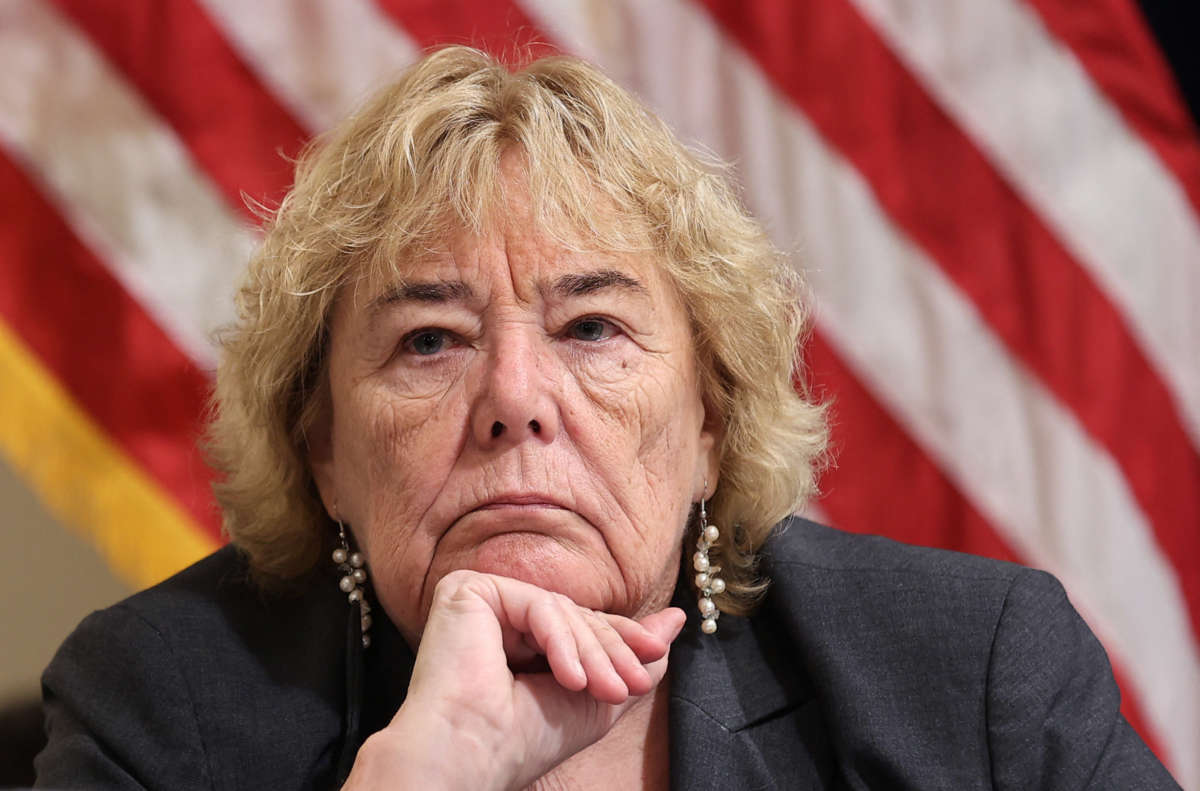A member of the congressional select committee tasked with investigating the January 6 Capitol riot said that if the four individuals from former President Donald Trump’s administration who were subpoenaed last week refuse to comply with orders, there could be repercussions.
Four former Trump aides were ordered to give closed-door testimony to the commission and to submit documents relevant to their investigation on the Capitol breach by next month, including Dan Scavino, who was in charge of Trump’s social media when he was president; Steve Bannon, a right-wing provocateur and former chief strategist to Trump; Kash Patel, who served as the acting chief of staff for the defense secretary on January 6; and Trump’s former chief of staff Mark Meadows.
Asked on CNN this week what would happen if any of those four individuals refused to comply with the subpoenas, Rep. Zoe Lofgren (D-California), a member of the January 6 commission, said they could face civil or criminal litigation.
“We want to give them the benefit of the doubt that they will respond as they should to this subpoena,” Lofgren said, but added that the commission is willing to utilize “all of the available options” if they refuse to cooperate, including getting the Department of Justice involved.
Lofgren said that it’s “possible” more people will be subpoenaed by the commission in the future, and that it will seek out records from the White House from when Trump was in office. Indeed, the commission is “sifting through” many documents relevant to their investigation that they’ve already received.
“This is a very active investigation,” Lofgren said.
Trump has promised to block the testimony of his four former aides, claiming he could do so based on “Executive Privilege and other grounds.” But earlier this year, the Justice Department said it would authorize former Trump administration officials to speak to the commission freely in the interest of helping the commission’s work.
Executive privilege is a legal protection that allows White House aides and the president to make decisions confidentially, without fear of scrutiny from Congress or even the public. The Presidential Records Act allows former presidents to evaluate executive branch records that could be handed over to Congress, if those documents were authored during the time they were in office. Upon inspection, a former president can claim that certain records are privileged information, but ultimately, the current president of the United States has the final say on whether they can be restricted or not.
If Biden determines that Trump’s objections are not sufficient, and turns those documents over in spite of his concerns, Trump can still sue to block those records from being shared. However, past lawsuits pertaining to information relevant to the public interest have mostly resulted in court decisions siding with those seeking to make them public record.
Join us in defending the truth before it’s too late
The future of independent journalism is uncertain, and the consequences of losing it are too grave to ignore. To ensure Truthout remains safe, strong, and free, we need to raise $43,000 in the next 6 days. Every dollar raised goes directly toward the costs of producing news you can trust.
Please give what you can — because by supporting us with a tax-deductible donation, you’re not just preserving a source of news, you’re helping to safeguard what’s left of our democracy.
